Richard Blanco is a civil engineer as well as a poet — an inspirational enough poet that he was asked to write three poems for President Barack Obama’s inauguration in 2013, one of which he read at the event.
He’s the son of Cuban exiles who immigrated to Miami and he and his partner own a home in Bethel.
That’s what most people who know about Blanco know.
What none of that information prepares you for, however, is how funny he is.
“People said to me that they never heard of me before the inauguration,” he told the a nearly full Waterville Opera House on Tuesday night. “Well, I never heard of me before the inauguration, either.”
When he asked if anyone had ever had Cuban bread and several people raised their hands, he asked with mock incredulity, “Where the HELL do you get Cuban bread in Maine?”
For two hours Blanco not only made those gathered laugh, he also made them cry. And gasp. And think.
Don’t think for a minute that a poetry reading can’t be transformative.
Poetry is the art of “finding that extraordinary moment in the most ordinary of moments,” Blanco said.
He talked of a moment sitting in his kitchen as his mother worked nearby and realizing the beauty of that simple scene.
“At that moment, poetry changed my life forever.”
He quoted the William Carlos Williams line, “So much depends upon a red wheel barrow glazed with rain water beside the white chickens.”
He believes finding the beauty in the ordinary helps connect us to each other, and that connection can do a lot to make the world a better place.
Blanco hopes that his message of poetry as a way to bring people together is particularly passed on to children. Before his event Tuesday at the Opera House, he spoke to students at Winslow Junior High School.
He said their understanding can “change the tide of what poetry can mean to us, can do for us.”
Blanco is a missionary for poetry. When he reads — both his own poems and those of others — his hands move like a conductor’s, his voice is at times thick with emotion and at others pauses to let a line sink in.
Or pauses to keep his emotion in check.
The Sandy Hook shooting in December 2012 happened while he was writing the inaugural poem “One Today.”
Tuesday night, he read Elizabeth Bishop’s poem “One Art,” which begins, “The art of losing isn’t hard to master …”
That poem is a touchstone for him — he tries to find the same balance of emotion and human connection in his own poems.
The day after Sandy Hook, he said, “I don’t know how those parents —” he paused and looked away as a dead silent room waited. “Got up the next morning,” he continued, after gathering himself.
“But they did.”
Much of life and what drives people to act is about loss, he said. Both what’s been lost and what we fear will be.
“Horrible and great things happen because of the will of the people,” he said later. “Art makes us connect as people. It connects our humanity.”
He also spoke of the longing most of us feel to be in a place where we feel comfortable and loved — a home.
He said after traveling the world, he, a Miami native, found that home in Bethel, where he and his partner now live part of the time.
He said Bethel is more like his parents’ native Cuba in many ways that Miami is.
Much of that is because “home” is a sense of community and belonging. A connection among people.
In Bethel, when “there’s eight feet of snow,” he said, “and you piss off the bartender, then you find out his girlfriend runs the plow.” That got appreciative laughs, but his point was serious.
“It’s all connected,” he said. “We’re all connected.”
The United States is “100,000 small towns put together” and “a land of misfit toys, fabulous misfit toys.”
He said that’s one of the things that drove his parents, and many others, many of our own parents, or grandparents, or great-grandparents, to come here.
“Let’s see if we can get back to it.”
Early in his talk he’d referenced the red wheelbarrow line from William Carlos Williams — familiar, if not to everyone, at least to us English majors.
His talk reminded me of another line from that poet that always summarized for me — a newspaper editor — the belief that poetry can have more of an impact on the world than the biggest newspaper story:
“It is difficult to get the news from poems yet men die miserably every day for lack of what is found there.”
In other words, just what Blanco said. If we all pay more attention to the message that much poetry brings — the beauty in the ordinary that connects us all — the world would be a better place.
We are exposed daily to that “dying miserably” both in fact and spirit.
Blanco believes — sincerely and without apology — that poetry can change that.
Tuesday night, a couple hundred people left the Waterville Opera House believing it, too.
Maureen Milliken is the news editor of Morning Sentinel and Kennebec Journal. Kennebec Tales appears the first and third Thursday of the month. Email her at mmilliken@centralmaine.com. Twitter: mmilliken47. For previous Kennebec Tales go to centralmaine.com.
Send questions/comments to the editors.

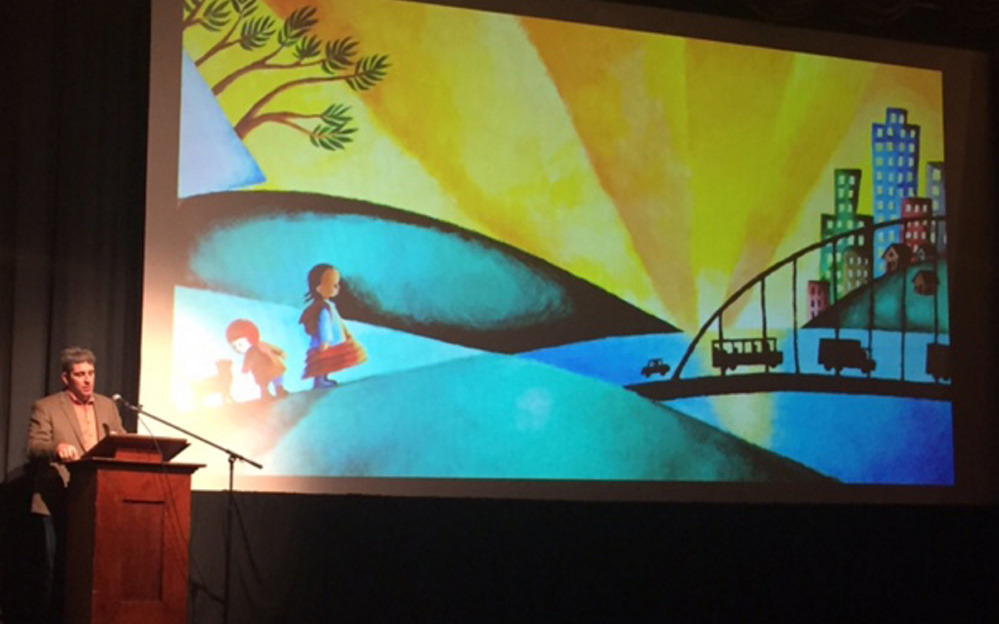
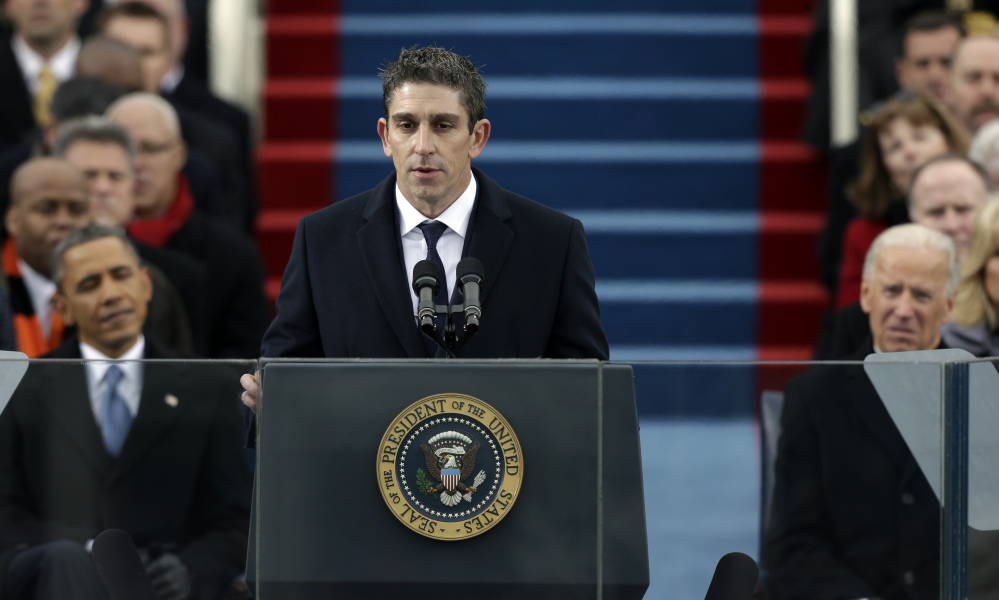
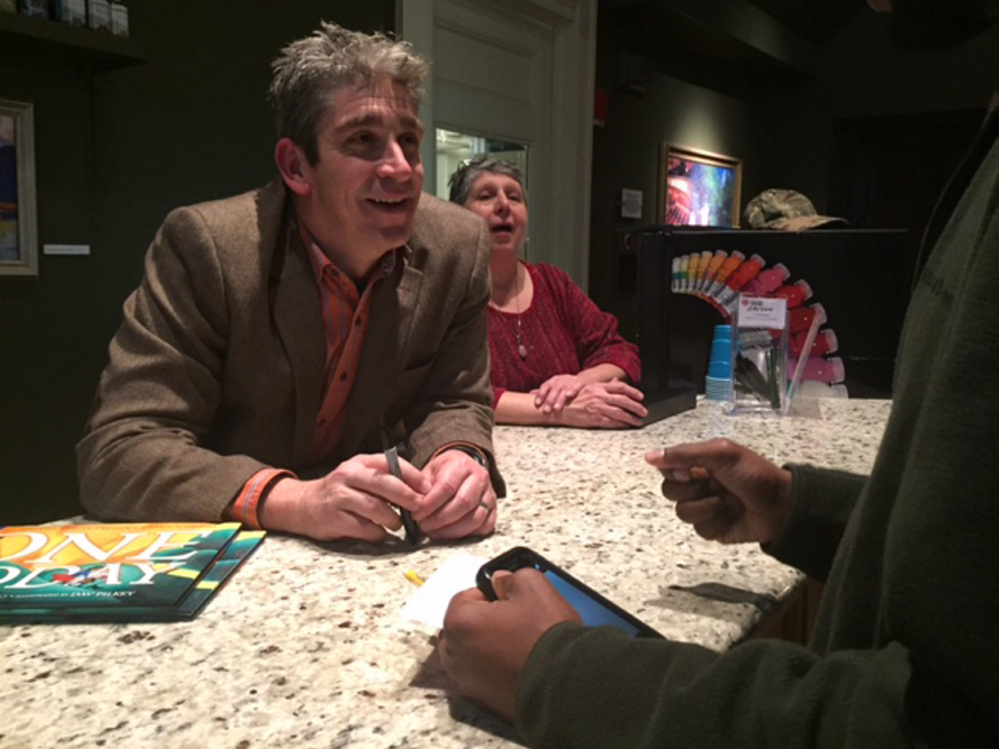

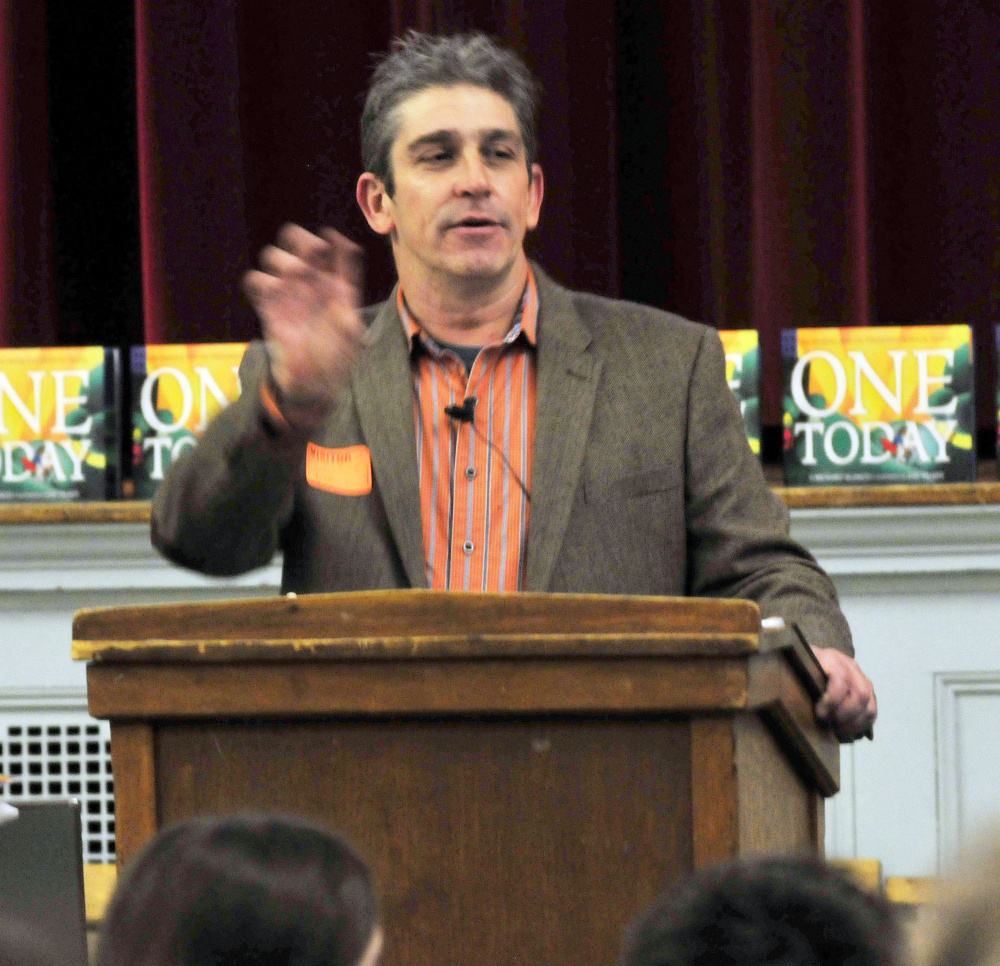
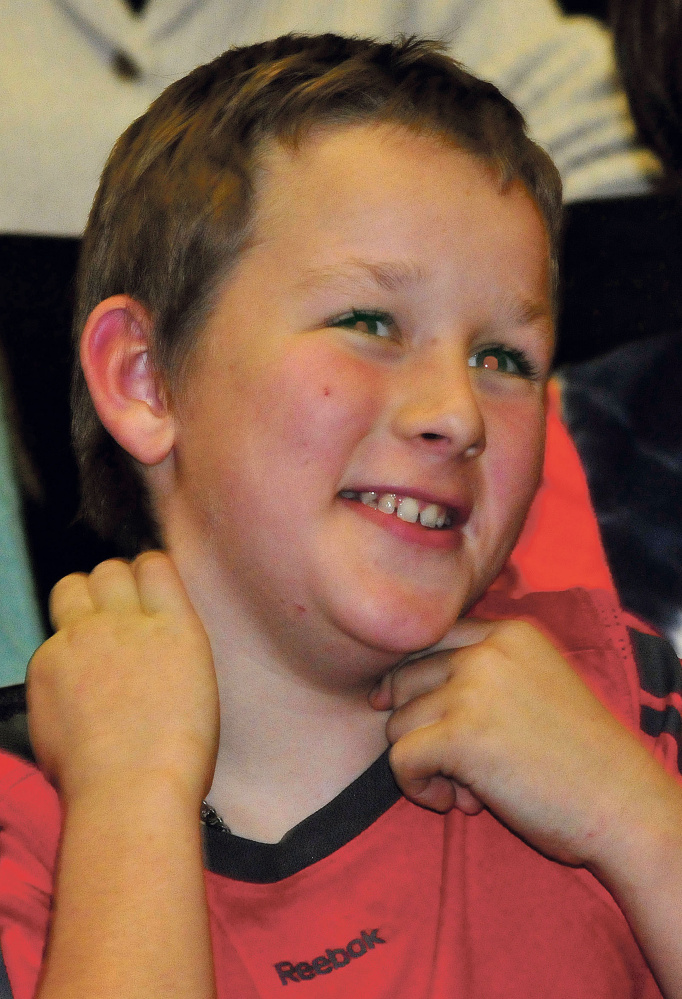
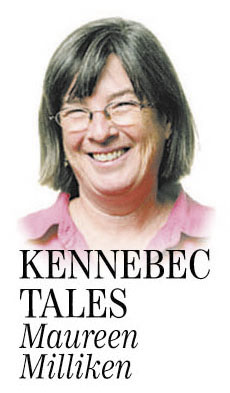

Comments are no longer available on this story